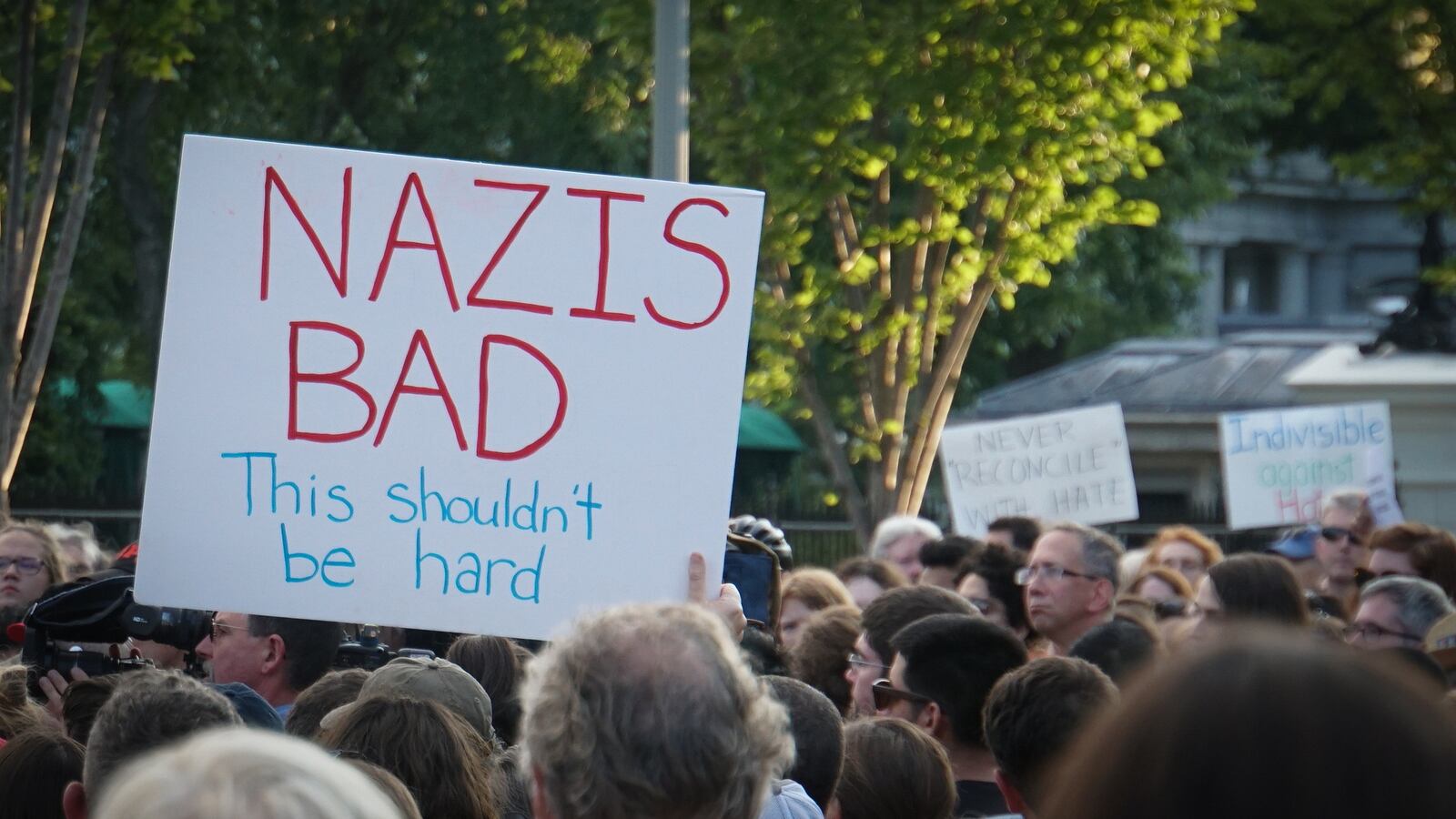Looking for help addressing Charlottesville in class? Dozens of other educators have your back.
In the wake of the racist violence in Virginia that left one protester dead this weekend, teachers took to Twitter with #CharlottesvilleCurriculum to share resources for addressing racism, hate, and history.
The hashtag, started by journalist Melinda Anderson, spurred a crowdsourced list of anti-racist resources. From podcasts to lesson plans, here are a few highlights:
For teachers who are on the fence about what they should discuss in the classroom: This NPR interview.
Paula McAvoy of the University of Wisconsin-Madison’s Center for Ethics and Education co-wrote a book about the right role for politics in the classroom.
“Young people need to see these as moments within their historical context – need to understand some of the history,” she told NPR. Although talking about current events can be difficult, McAvoy says that good teachers don’t shy away — they start building curriculum.
For white teachers unsure how to handle conversations about race: This podcast episode.
This episode of Truth for Teachers, a podcast for educators, provides advice for those who want to talk about inequity but need help getting started. Read the full transcript here.
For teachers looking for a comprehensive history lesson: This report.
“This is a history of hate in America — not the natural discord that characterizes a democracy, but the wild, irrational, killing hate that has led men and women throughout our history to extremes of violence against others simply because of their race, nationality, religion or lifestyle,” starts a Southern Poverty Law Center’s report on the Ku Klux Klan.
The report, from SPLC’s Klanwatch initiative, is a critical reminder of the group’s influence on modern racism and terrorism in the U.S.
For teachers who are ready to spark deep conversation: This series of lessons.
These 17 lessons, a unit called Decision Making in Times of Injustice from the group Facing History and Ourselves, are helpful for middle through high school teachers looking to connect the Holocaust with modern racism. They aim to outline the rise of the Nazi party while also pushing students to question their own decision making and beliefs.
For teachers curious about how others have addressed Black Lives Matter: This school district profile.
The story of how one New York school district created a “Black Lives Matter” day explains how officials prepared teachers and offers advice for educators looking to do the same.
“To encourage staff participation (which was voluntary) and to showcase that Black Lives Matter is a teachable topic, the committee worked with Stephen LaMorte — [Rochester City School District’s] executive director of social studies — to develop an online instructional resource toolkit.” That toolkit is here.
The story is produced by Teaching Tolerance, which offers free resources for educators looking to discuss race and ethnicity as well as gender, sexuality, class and immigration.
Teachers, we’d love to know if or how you’re tackling these issues. Tell us what you’re up to and we’ll share a collection of your ideas with readers.


